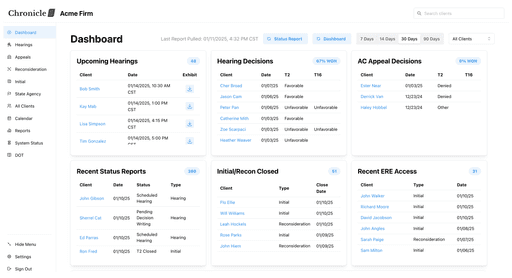21 February, 2024
by Nikhil Pai
Social Security Disability Lawyers are increasingly integrating Artificial Intelligence (AI) into their practices for enhanced efficiency and case management. However, this adoption comes with crucial privacy and ethical considerations. Here's a concise guide on navigating AI use while safeguarding client data.
Anonymize Client Data
Client confidentiality is paramount. Lawyers must ensure AI tools anonymize any Personally Identifiable Information (PII) to maintain privacy and trust.
Quick Tips:
Invest in robust data anonymization software.
Perform regular data processing audits to ensure compliance.
Prevent Misuse of Client Data in AI Training Sets
It's essential to ensure that AI providers do not use client data for training their models, protecting against unauthorized use and ethical breaches.
Selection and Contracts:
Choose AI vendors with clear policies against using client data in training sets.
Include strict data usage terms in contracts, emphasizing the prohibition of client data in AI training.
Legal and Ethical AI Use
Maintaining legal and ethical standards involves staying updated on AI regulations and ensuring secure, encrypted data handling.
Staying Compliant:
Keep abreast of evolving AI legal frameworks.
Verify AI tools' security measures for client data protection.
For Social Security Disability Lawyers, the ethical use of AI tools requires diligent management of client data privacy. By anonymizing data and ensuring AI services respect confidentiality, lawyers can embrace technology without compromising on client trust and legal integrity. This approach not only adheres to ethical standards but also positions law firms as leaders in responsible AI use within the legal industry.







